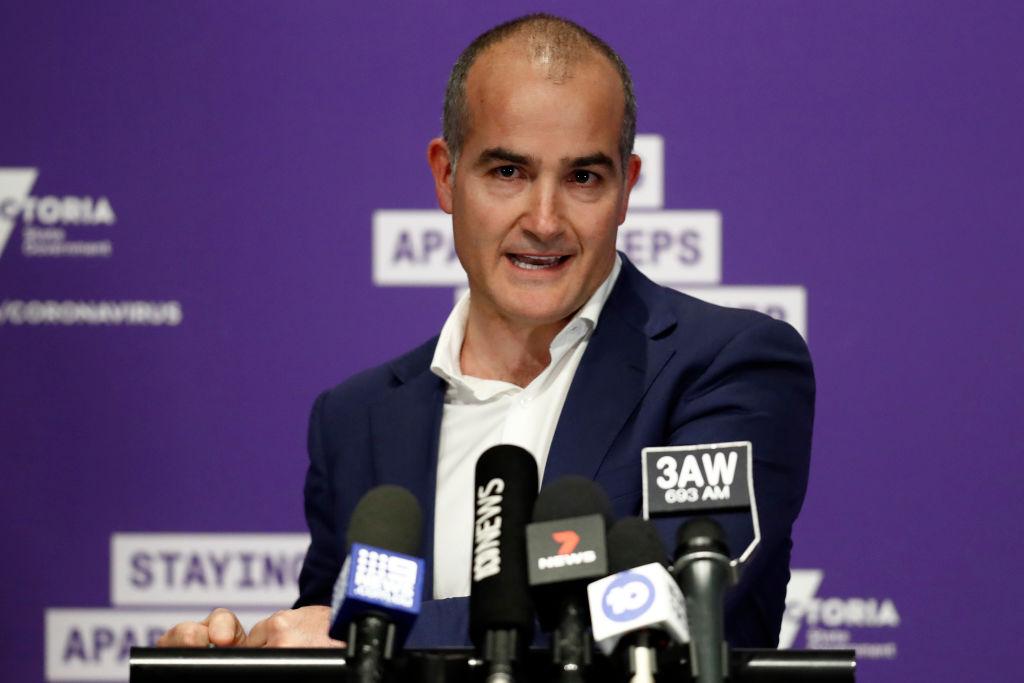
James Merlino speaks to the media during a press conference on August 02, 2020 in Melbourne, Australia. Darrian Traynor/Getty Images
Victoria’s upcoming budget will feature an unprecedented $868.8 million in funding to reform the state’s “broken” mental health system.
Mental Health Minister James Merlino said the system was not fit for purpose, even prior to the COVID-19 pandemic.





